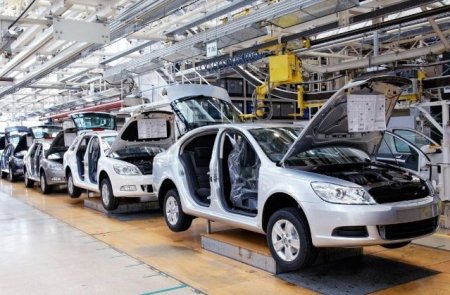P
ProfRem
Guest
Nigeria is projected to become the hub of Africa’s automotive industry. Accordin to a recent report by PricewaterhouseCoopers (PwC).
Nigeria's population is estimated to about 170 million people, over 40 million of who are in the growing middle class, the continent’s largest economy is increasingly seen as an attractive destination for investors across all sectors.
The largely import dependent automotive industry has become the focus of this attention in recent times.
This is among key findings in a new automotive report released today by leading professional services firm, PwC. Titled Africa’s Next Automotive Hub, the report takes an in-depth look into the Nigerian automotive industry from the 1960s to date

With the initial apathy by the Buhari administration to the full implementation of the National Automotive Industry Development Plan (NAIDP), started by his predecessor, Ex-President Goodluck Jonathan lifted; automotive industry stakeholders say that with the take-off of the most important aspect of the policy-high tariff (70 per cent) on imported vehicles, and just 10 per cent duty charged on semiknocked parts, used for assembling madein- Nigeria vehicles, the industry is set to boom.
One of the firms that have commenced local assembling of vehicles in Nigeria, Kewalram Chanrai Group, a leading dealer of Foton, Isuzu Cherry and Mitsubishi automobiles in Nigeria has forecasted production of 78,000 new vehicles annually at the company’s new vehicle assembly plant in Isolo, Lagos.
Read more: PwC
Full Report
Nigeria's population is estimated to about 170 million people, over 40 million of who are in the growing middle class, the continent’s largest economy is increasingly seen as an attractive destination for investors across all sectors.
The largely import dependent automotive industry has become the focus of this attention in recent times.
This is among key findings in a new automotive report released today by leading professional services firm, PwC. Titled Africa’s Next Automotive Hub, the report takes an in-depth look into the Nigerian automotive industry from the 1960s to date

With the initial apathy by the Buhari administration to the full implementation of the National Automotive Industry Development Plan (NAIDP), started by his predecessor, Ex-President Goodluck Jonathan lifted; automotive industry stakeholders say that with the take-off of the most important aspect of the policy-high tariff (70 per cent) on imported vehicles, and just 10 per cent duty charged on semiknocked parts, used for assembling madein- Nigeria vehicles, the industry is set to boom.
One of the firms that have commenced local assembling of vehicles in Nigeria, Kewalram Chanrai Group, a leading dealer of Foton, Isuzu Cherry and Mitsubishi automobiles in Nigeria has forecasted production of 78,000 new vehicles annually at the company’s new vehicle assembly plant in Isolo, Lagos.
Read more: PwC
Full Report

